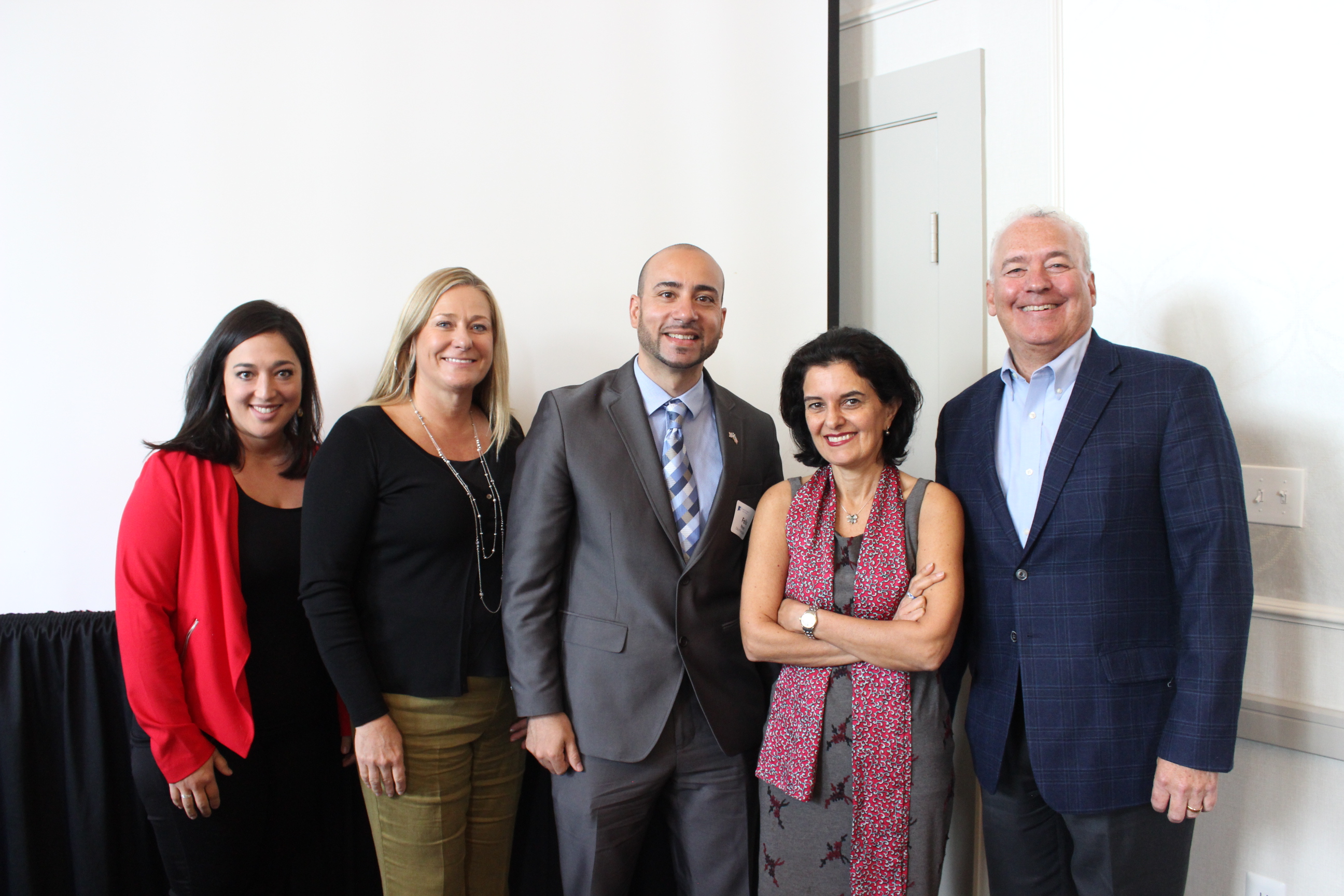Eastern CT – “If you do nothing else, what do you need to do today to prepare for ten years from now?” Pamela J. Stenson, former President, CIO Executive Council, an IDG Company, asked panelists at the Chamber’s Business Breakfast entitled “The Region’s Leadership Evolution” on Wednesday, May 15, 2019. With over 25% of the workforce headed toward retirement, developing rising leaders from diverse backgrounds is essential planning for the future. The panel discussed issues around planning succession, retaining institutional knowledge, and supporting new talent to take the reins.Chamber Panel Discusses Path for Future Leaders

Stenson shared her personal experiences inside a global corporation set adrift when its founder died unexpectedly with no plan in place. The business value decreased from $4 billion to $1 billion in the two years it took to secure a sale.
“If we don’t groom the bench” said Stenson, emphasizing an inclusive and diverse plan, “our legacy is going to be lost as well.”
Citing a USA Today survey, Stenson offered the staggering statistic that 58% of small businesses have no formal transition plan. Michael Rauh, president and CEO of Chelsea Groton Bank, pointed to the many small business owners who plan their retirement around a successful sale of their business. “If you wait too long figure out how to extract that value, you can run into a number of problems.” Developing a long-range plan helps owners achieve the highest value and navigate tax implications.
Stenson emphasized the importance of succession planning for institutions’ continued success: “For any business to survive, grow and prosper, we as leaders have an obligation to hand over everything we know. That means inspiration, motivation…training and leadership development.”
Panelist Community Foundation President and CEO Maryam Elahi noted that an organization can be hampered by strong association with a single leader: “We try to ensure that nonprofits in our sector think about the continuity of the mission and that succession planning isn’t a switch, but that it’s incorporated in the strategic plan.” Elahi emphasized repeatedly the value of cross-training staff to manage change.
The panel discussion identified multi-generational, diverse teams as a key component of developing talent in rising leaders and creating a flow of institutional knowledge to new employees. Felix Reyes, director of New London’s Office of Development and Planning, plans time for co-workers to get to know each other outside their work responsibilities. He makes knowledge transfer part of his financial planning, overlapping new hires with retirees to promote successful transitions.
Mari Kodama, general manager of Breakwater Restaurant in Stonington and member of the JTK Management family, remarked on the diverse teams, ranging in age, experience and background, that form “close-knit, family-like environments” through which newcomers learn the hospitality industry. Instruction from seasoned experts supports the development of talented new hires who possess the difficult-to-teach soft skills, allowing them to rise through the organization and become valued employees. “Target and find the people you can see growing within the company and take the time to help develop them,” said Kodama. “If they are excited, if they have the drive to learn, that’s really something that you can’t replace.”
Stenson compared diverse teams to a great party. The many components—from the music and aroma of the food to the mixture of groups of friends from the youngest to oldest—make the experience more fun than a gathering of people all with the same interests and experiences.
To expand the diversity of perspectives, Elahi suggested that even when resources don’t allow for expansion opportunities can be created to bring in new voices through internships, volunteers or committees. “There are many ways of creating a larger scope of visionary people within any organization to help with outreach or integration in the community.”
This discussion was part of the Chamber’s “Leadership Pathways and Perspectives” series, which explores the importance of diverse ethnicities, genders, immigration experience, and age on business and community leadership through the insights of local professionals.
On June 14, the Chamber welcomes U.S. Representative Joe Courtney for a Business Breakfast presentation on his legislative goals and issues impacting the region. Information on attending or supporting the June Business Breakfast is available at www.ChamberECT.com.


